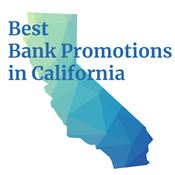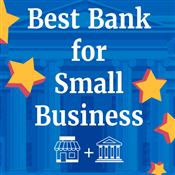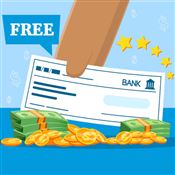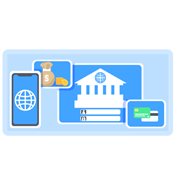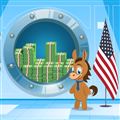Best Banks in Minnesota
Ad Disclosure: This article contains references to products from our partners. We may receive compensation if you apply or shop through links in our content. This compensation may impact how and where products appear on this site. You help support CreditDonkey by using our links.
From community credit unions to national powerhouses, which banks in Minnesota truly rise above the rest? Find out here.
 |
Beyond its stunning lakes, Minnesota is also home to numerous banks and credit unions, both large and small. But, with so many great options, choosing the right one can feel overwhelming.
To discover your ideal banking partner, check out this curated list of the top banks in Minnesota. Only the best deserves your attention!
- Bank of America Advantage Banking:
Up to $500 Cash Offer - Wells Fargo Everyday Checking Account:
$325 Bonus - Chase Total Checking®:
$400 Bonus - PNC Bank:
Virtual Wallet with Performance Select Checking - $400 Bonus - Huntington:
Personal Checking Account - $600 Bonus - U.S. Bank Smartly® Checking:
$450 Bonus - BMO:
Personal Checking Account - $400 Bonus - Associated Bank:
Personal Checking Account - $600 Bonus - The Bank of Elk River:
Personal Checking Account - $300 Bonus - Blaze Credit Union:
Personal Checking Account - $225 Bonus
Bank of America Advantage Banking - Up to $500 Cash Offer
- The cash offer up to $500 is an online only offer and must be opened through the Bank of America promotional page.
- The offer is for new checking customers only.
- Offer expires 05/31/2026.
- To qualify, open a new eligible Bank of America Advantage Banking account through the promotional page and set up and receive Qualifying Direct Deposits* into that new eligible account within 90 days of account opening. Your cash bonus amount will be based on the total amount of your Qualifying Direct Deposits received in the first 90 days.
Cash Bonus Total Qualifying Direct Deposits $100 $2,000 $300 $5,000 $500 $10,000+ - If all requirements are met 90 days after account opening, Bank of America will attempt to deposit your bonus into your new eligible account within 60 days.
- Bank of America Advantage SafeBalance Banking® for Family Banking accounts are not eligible for this offer.
- Additional terms and conditions apply. See offer page for more details.
- *A Qualifying Direct Deposit is a direct deposit of regular monthly income – such as your salary, pension or Social Security benefits, which are made by your employer or other payer – using account and routing numbers that you provide to them.
- Bank of America, N.A. Member FDIC.
Wells Fargo Everyday Checking Account - $325 Bonus
- Get a $325 new checking customer bonus when you open an Everyday Checking account and receive $1,000 or more in qualifying direct deposits.
- Wells Fargo Bank, N.A.
Member FDIC
Chase Total Checking® - $400 Bonus
- New Chase checking customers can receive $400 when you open a Chase Total Checking® account and make direct deposits totaling $1,000 or more within 90 days of coupon enrollment.
- Unlock more offers with Chase. Get up to $500 per calendar year by referring friends and family. Plus, get cash back from top brands with Chase Offers when you use your debit card.
- Chase Total Checking® has a $15 monthly service fee, you can easily avoid the fee with direct deposits totaling $500 or more, or a minimum average daily balance each statement period.
- Chase Overdraft Assist℠ – no overdraft fees if you're overdrawn by $50 or less at the end of the business day or if you're overdrawn by more than $50 and bring your account balance to overdrawn by $50 or less at the end of the next business day*
- Chase Mobile® app makes banking simple. Manage accounts, pay bills, send money to friends with Zelle® and deposit checks on the go with Chase Quick Deposit℠.
- Chase has the largest branch network in the U.S. with thousands of ATMs and branches. Use the Chase locator tool to find a branch or ATM near you.
- Chase helps keep your money protected with features like Zero Liability Protection, fraud monitoring and card lock.
- Chase Total Checking includes FDIC insurance up to the maximum amount allowed by law.
U.S. Bank Business Essentials - $400 Bonus
Promo code Q1AFL26 MUST be used when opening a U.S. Bank Business Essentials® or Platinum Business Checking account. Limit of one bonus per business. A $100 minimum deposit is required to open one of the referenced accounts.
To earn a business checking bonus, open a qualifying U.S. Bank business checking account between 1/15/2026 and 3/31/2026. Make the required deposit(s) in new money within 30 days of account opening, maintain the same required daily balance through the 60th day, and complete 6 qualifying transactions based on posted date within 60 days of account opening.
Business Essentials: $400 bonus with $5,000 new money deposits, daily balance, and 6 qualifying transactions.
Qualifying transactions include debit card purchases, ACH and wire credits or debits, Zelle credits or debits, U.S. Bank Mobile Check Deposit, electronic or paper checks, Bill Pay (excluding payments made by credit card), and payment received via U.S. Bank Payment Solutions. Other transactions, such as person-to-person payments, credit card transfers, or transfers between U.S. Bank accounts, are not eligible.
New money is defined as funds from outside U.S. Bank and cannot be transferred from another U.S. Bank product or a U.S. Bank Affiliate. For accounts opened on non-business days, weekends or federal holidays, the open date is considered the next business day. Account fees may reduce the required daily balance during the qualifying period.
Bonus will be deposited into your new eligible U.S. Bank business checking account within 30 days after the month-end in which all offer requirements are met, provided the account remains open with a positive available balance.
Offer may not be combined with other business checking bonus offers. Existing businesses with a business checking account or had one closed within the past 12 months, do not qualify.
All regular account-opening procedures apply. For full checking account pricing, terms and policies, refer to your Business Pricing Information, Business Essentials Pricing Information, and YDAA disclosure. These documents are available at any U.S. Bank branch or by calling 800.872.2657.
Bonus will be reported as interest earned on IRS Form 1099-INT and recipient is responsible for any applicable taxes. Current U.S. Bank employees are not eligible. U.S. Bank reserves the right to withdraw this offer at any time without notice.
Member FDIC
7 Best Banks in Minnesota
 |
To find the best banks in Minnesota, we looked at factors like account options, interest rates, and branch accessibility.
Your bank significantly impacts your daily life, particularly in terms of convenience and service. But choosing one doesn't have to be hard—discover your ideal bank below.
U.S. Bank: Best National Bank
U.S. Bank is a national bank with a strong local presence in Minnesota, boasting over 100 locations statewide.
It's ideal for everyday banking, especially with the U.S. Bank Smartly Checking account. You can enjoy a Visa debit card and access to over 40,000 MoneyPass ATMs nationwide.
Their highly-rated mobile app helps keep you in control of your money. Get tools to track spending, set budgets, plan for goals, and monitor your credit. You can even link accounts from other banks to see a clear view of your finances.
While there’s no minimum balance required to maintain the account, maintaining a higher balance is one way to waive the monthly fee. The fee is also automatically waived for youth ages 13–17, young adults ages 18–24, seniors aged 65 and older, and military personnel.
Alternatively, the U.S. Bank Safe Debit Account is a simpler option than traditional checking. It’s a checkless checking account and has no overdraft fees—perfect for those who prefer to manage spending with more control.
U.S. Bank Smartly® Checking - $450 Bonus
Open a new U.S. Bank Smartly® Checking account and deposit a minimum of $25 at account opening. Enroll in the U.S. Bank Mobile App or online banking within 90 days of account opening. Complete two or more direct deposits totaling $8,000 or more within 90 days of account opening.
The information for U.S. Bank Smartly® Checking Account has been collected independently by CreditDonkey. The details on this page have not been reviewed or provided by the bank.
Pros:
- Extensive ATM network
- 24/7 customer support
- Free student checking account
- Various savings accounts, CDs, and MMAs available
Cons:
- Higher minimum balance to waive monthly fee
- High balance requirement to earn good savings APY
Old National Bank: For Interest-Earning Checking
Old National Bank is one of the largest regional banks in the Midwest, boasting over 80 locations in Minnesota alone. It offers a wide range of services for different needs and lifestyles, from checking accounts to private banking services. This makes it a solid choice if you want to do all your banking under one roof.
For everyday banking, consider ONB Everyday Checking. While it has a $6.95 monthly fee, you can waive this through multiple ways, like making at least 15 qualifying debit card transactions or $500 in total direct deposits each month.[1]
Looking to earn interest? ONB Preferred Checking is the way to go. You can manage your money more efficiently while also earning tiered interest on your balance. It has a $15 monthly fee, but the bank gives you multiple ways to waive it.[2]
Whichever checking account you choose, you'll get a free Mastercard® debit card that you can use at any Old National ATM and 55,000+ surcharge-free Allpoint ATMs worldwide. Plus, with access to free online and mobile banking, your money is within reach both physically and virtually.
Old National Bank: Personal Checking Account - $600 Bonus
Open a new ONB Preferred or Everyday Checking account. Set up and receive at least 3 qualifying direct deposits totaling $12,000 or more within the first four months of account opening.
Pros:
- 80+ branches in MN
- Extensive ATM network
- Interest-earning checking accounts
Cons:
- Low APYs for checking & savings
- High waiver requirements for ONB Preferred Checking
Associated Bank: For Multiple Checking Options
Associated Bank is a regional bank with a solid footprint in the Midwest, boasting nearly 200 locations across several states. While it only has 18 branches in Minnesota, you can still easily access your money through its more than 30,000 fee-free ATMs.
It stands out thanks to its wide range of checking accounts. With about eight options to choose from, you're more likely to find a checking account that fits your unique needs and lifestyle.[4]
For example, you can opt for the Associated Access Checking if you want easy and hassle-free banking. It has no monthly fees or minimum balance requirements, so you get to keep more of your money in your account.
Alternatively, if you want more features, the Balanced Checking account is a great upgrade, offering additional perks like free credit monitoring. Just remember, it has a $9 monthly fee, but it can be waived through multiple ways.
No matter which account you choose, you can use the Associated Bank Digital app to manage your finances anytime and anywhere. With just a few taps, you can send and receive money, pay bills, track your spending, set budgets, deposit checks, and more.
Associated Bank: Personal Checking Account - $600 Bonus
Open a new eligible Associated Bank checking account. Set up and receive direct deposits totaling $500 or more within 90 days of account opening. Maintain a cumulative daily average balance of $10,000 or more on all your open Associated Bank deposit accounts for days 31-90.
Pros:
- Extensive ATM network
- Various checking options available
- Handy financial management tools
Cons:
- Only 18 branches in MN
- Must manually opt out of paper statements
Affinity Plus Credit Union: Best Credit Union
If you're looking for an alternative to traditional banks, Affinity Plus Credit Union is an excellent choice. With 32 locations across Minnesota and 60,000+ in-network ATMs throughout the country, accessing your money is a breeze.[5]
Affinity Plus Credit Union offers great checking options for those looking to manage their funds. With the Better Than Free Checking account, you can enjoy no minimum balance, no monthly fees, and no ATM fees at partner ATMs—ensuring an affordable and hassle-free banking experience.
Plus, you can easily manage your account through their mobile app, which lets you deposit checks, make automatic bill payments, and set up direct deposits. Qualified members can also enjoy overdraft protection for checks and ACH transfers.
At Affinity Plus, you get all the perks of a traditional bank, plus personalized service rooted in their member-focused approach.
Pros:
- 32 branches in MN
- Large ATM network
- User-friendly mobile app
Cons:
- Must be a member to open an account
A credit union is owned by members, not for profit, and usually has lower fees and better rates. They offer personal service but may have fewer locations and older tech. Banks are for-profit, with more branches and better digital services. Both are safe, but credit unions may limit who can join.
Quontic: Best Online Bank
If traditional banking isn't for you, consider online banks like Quontic Bank. While it doesn't have physical branches, you can still easily access your funds almost anywhere, thanks to its over 90,000 fee-free ATMs.
Much like brick-and-mortar banks, it offers a full range of services for different lifestyles and goals, including checking and savings accounts, CDs, and loans.
If you're looking to earn interest on your everyday account, check out the High Interest Checking account. You can get a minimal APY by making at least 10 qualifying debit card purchases worth $10 or more each month.
Want to earn cash back instead? Consider the Cash Rewards Checking account. You can earn as much as 1.00% cash back on qualified Quontic debit card purchases every month.[6]
Whichever account you choose, you don't have to worry about monthly fees or minimum balance requirements. Plus, you can manage everything through the user-friendly mobile app. Keep track of your funds, make crucial transactions, and even monitor non-Quontic bank accounts in one convenient app.
Quontic: High Interest Checking - Up to 1.10% APY
- Earn up to 1.10% APY
- $100 minimum opening deposit
- APY is based on the account balance and making at least 10 qualifying debit card point-of-sale transactions of $10.00 or more per statement cycle.
Pros:
- Extensive ATM network
- Easy-to-use mobile app
- No monthly fees
Cons:
- No business accounts
- Must meet requirements to earn APY on checking
Huntington Bank: Best Regional Bank
Huntington Bank is a regional bank focused on the Midwest, boasting over 80 branches in Minnesota and over 1,600 ATMs throughout the region. If you want a local banking experience with decent rates and low fees, this can be your best bet.
Huntington Bank is a solid choice if you're looking for a free checking account, thanks to its Asterisk-Free Checking. Apart from being a free account, it comes with other perks like $50 overdraft forgiveness and early direct deposit up to two days in advance.
You can also get access to Standby Cash, a line of credit from $100 to $750 for eligible checking customers. You can use the full amount for a small fee and have three months to pay it back. It’s also interest-free if you set up automatic payments.
Pros:
- Free checking option
- Interest checking options available
- Perks like Standby Cash and 24-Hour Grace
Cons:
- Low interest rates on savings accounts
Huntington: Personal Checking Account - $600 Bonus
Ally Bank: Best Online Savings Account
Ally Bank is another digital bank worth considering, especially for tech-savvy individuals who are looking to grow their savings.
Ally Bank is a solid pick if you want strong interest rates and don't mind only banking online. It charges no monthly fees and offers competitive returns on savings.
The Ally Savings Account offers a solid 3.30% APY with no minimum balance. One standout feature is the "buckets" tool, which lets you divide your savings into different goals (like for emergencies or a new car). This helps you track your progress and stay organized.
If you need a checking account, the Ally Bank Spending Account got you covered. It has no monthly fees, no overdraft charges, and access to early direct deposit to keep your cash flow running smoothly.
Pros:
- 75,000+ no-fee Allpoint and MoneyPass ATMs
- Interest-earning checking account
- Competitive APYs compared to traditional banks
- Handy digital banking tools
Cons:
- No physical branches
- No cash deposit
Ally Bank: Online Savings Account - 3.30% APY
$0 minimum opening deposit. No minimum balance requirement. No fees to open or maintain account.
Our Methodology
In creating this list, we focused on FDIC-insured banks with branches in the state to emphasize convenience and community support. We also considered factors like locations, online banking, and service range.
However, we also included reputable online-only banks, which are gaining popularity for offering higher APYs. Our data came from publicly available websites and financial reports.
Types of Banks in Minnesota
Below are the different types of banks you'll find in Minnesota:
National banks
National banks, chartered and supervised by the U.S. Treasury, offer a wide range of financial products like banking, credit cards, loans, and investments. These banks typically provide convenient access to services with branches and ATMs across multiple states.
Regional banks
Regional banks, on the other hand, serve specific geographic areas such as a state or region. They have fewer branches than national banks but offer more personalized services.
Online banks
Online banks offer financial services without physical locations. Everything is handled through their website or mobile app, and you can usually withdraw cash at ATMs.
Without the cost of maintaining branches, online banks often provide higher interest rates, no service fees, and lower balance requirements.
Credit unions
Credit unions offer checking and savings accounts, prioritizing member service over profit. As member-owned institutions, they often provide better savings and loan rates.
However, they have membership requirements and may offer fewer services than traditional banks.
How to Choose the Best Bank in Minnesota
Just like you're laying down roots in Minnesota, your money also needs a financial home. Here's what to consider when choosing the right bank:
Accessibility
Convenience is key. Choose a bank with branches close to your home and work, so you have easy access to ATMs and in-person support.
Checking and savings accounts
Pick a bank with the accounts and features you need. For example, some banks' checking accounts may have overdraft assistance or free budgeting tools.
Monthly fees
Some banks (especially traditional banks) charge a monthly fee unless you maintain a certain minimum balance or meet other criteria. This doesn't have to be a dealbreaker, as long as you can easily meet the requirements.
Additional services
Looking for more than banking? Banks usually also offer credit cards, loans, investment tools, and small business products. Look into the bank's other services if you want a one-stop-shop.
How to Open a Bank Account in Minnesota
Opening an account at a bank or credit union is simpler than you think, and the process is almost the same everywhere.
Here's how it typically works:
- Go to the website or visit a physical branch of your chosen bank.
- Complete the application form and provide your basic information, such as name, address, SSN, valid ID, etc.
- Submit your application and fund your account.
Remember, when opening an account with a credit union, you'll need to meet their membership requirements first.
Bottom Line
Minnesota boasts a wide range of banks and credit unions, giving you plenty of options to find the perfect fit for your financial needs.
If you're into traditional banking, consider major players like U.S. Bank or Huntington Bank. For a more personal touch or better rates, check out Affinity Plus Credit Union or Quontic.
At the end of the day, it all boils down to your personal preferences and priorities. The choice is yours!
References
- ^ Old National Bank. ONB Everyday Checking, Retrieved 08/14/2025
- ^ Old National Bank. ONB Preferred Checking, Retrieved 08/14/2025
- ^ OId National Bank. Old National Welcomes Bremer Bank, Retrieved 08/14/2025
- ^ Associated Bank.Personal Checking Accounts, Retrieved 10/04/2024
- ^ Affinity Plus Credit Union. Locations, Retrieved 08/23/2024
- ^ Quontic. Quontic Checking Accounts, Retrieved 08/10/2025
Darlene Santos is a research analyst at CreditDonkey, a bank comparison and reviews website. Write to Darlene Santos at darlene.santos@creditdonkey.com. Follow us on Twitter and Facebook for our latest posts.
Note: This website is made possible through financial relationships with some of the products and services mentioned on this site. We may receive compensation if you shop through links in our content. You do not have to use our links, but you help support CreditDonkey if you do.
|
|
| ||||||
|
|
|





